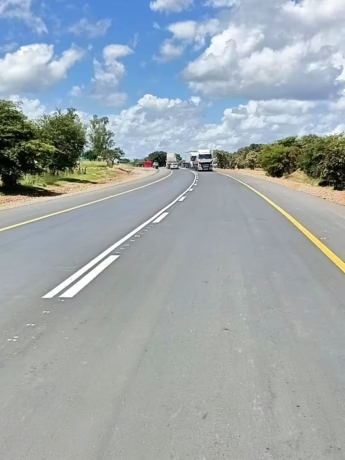
The revitalization of David Whitehead Textiles, a key player in Zimbabwe’s textile sector, marks a significant milestone in the country’s broader economic recovery strategy. With a US$20 million capital injection from Agri Value Chain Zimbabwe (AVCZ), the company has transitioned from near collapse to operating at 60 percent capacity, underscoring the potential of value chain investments in industrial revival.
The textile industry, once a cornerstone of Zimbabwe’s manufacturing sector, suffered a prolonged decline due to economic instability, lack of capital investment, and competition from cheap imports. However, David Whitehead Textiles’ resurgence suggests that government-backed industrial policies, coupled with private sector financing, can reignite local production. The installation of high-tech fabric manufacturing equipment has not only improved efficiency but also demonstrated the effectiveness of modernized production processes in reviving a struggling sector.

Rainbow Hotels — Experience Luxury Across Zimbabwe
Rainbow Hotels continues to redefine hospitality standards in Zimbabwe, offering world-class accommodation, fine dining, and modern conference facilities in Harare, Bulawayo, and Victoria Falls.
Whether for business or leisure, Rainbow Hotels delivers unmatched comfort, exceptional service, and a truly premium guest experience tailored to modern travellers.
Book NowManaging Director Rodreck Musiyiwa revealed that the company now produces 400 tonnes of yarn and two million meters of fabric per month, significantly contributing to the local market. The increase in output is complemented by job creation, with over 300 employees currently on-site and more positions expected as operations expand. These developments highlight the dual benefits of industrial revival: economic growth and employment generation.
From a policy perspective, the government’s renewed emphasis on value addition and import substitution is becoming evident. Deputy Minister of Lands, Agriculture, Water, Fisheries, and Rural Development, Honourable Vangelis Haritatos, acknowledged the role of the newly established Deputy Ministers Forum—comprising the Ministries of Lands, Industry, and Finance—in strengthening trade linkages and funding models. His visit to David Whitehead Textiles signals a broader commitment to supporting industries that enhance domestic production capacity.
The company’s revival also has ripple effects across the agricultural sector, particularly for cotton farmers. With a stable domestic market for raw cotton, farmers are likely to benefit from improved prices and demand, further integrating agriculture into Zimbabwe’s industrialization agenda. Additionally, reducing reliance on imported textiles aligns with the government’s long-term goal of enhancing self-sufficiency and stabilizing foreign currency reserves.
However, sustaining this momentum requires addressing persistent challenges such as power supply disruptions, high production costs, and competition from imported fabrics. If Zimbabwe can develop comprehensive policies that provide incentives for local manufacturers while tightening controls on cheap imports, the textile industry could once again become a major contributor to national economic growth.
The resurgence of David Whitehead Textiles serves as a case study in successful industrial rehabilitation, demonstrating that with the right mix of investment, policy support, and innovation, Zimbabwe’s manufacturing sector can be revived. Whether this success will translate into broader industrial growth depends on sustained government support, market stability, and continued investment in value-added production.




